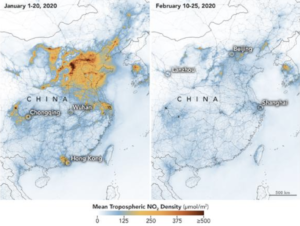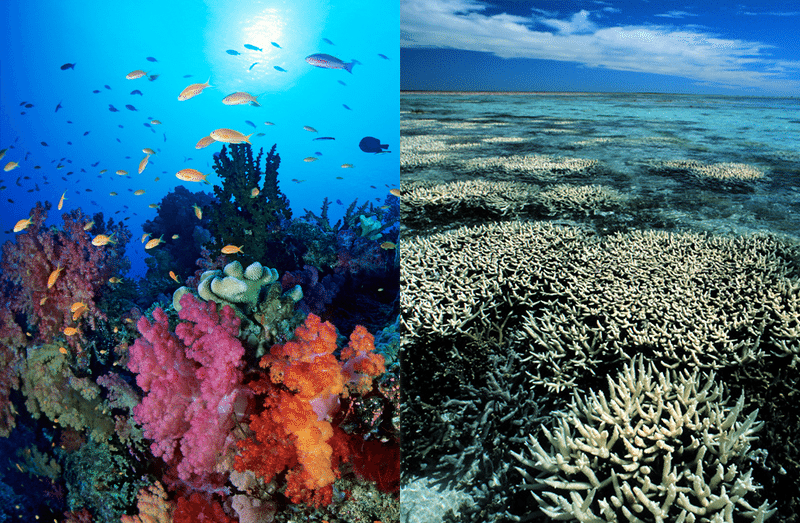The audience of Wired is typically the younger generation, and most likely with higher education. One of the main stories on the front page is how to be able to vote during the pandemic, which goes with a younger college audience that I believe would be on the more liberal side. The purpose is to keep the audience up to date with what’s going on not only in the US but also in other countries, so the audience isn’t just US citizens.
Plan Op-ed
The topic I am choosing to write about is what COVID-19 has to do with Climate Change. I am writing about how the pandemic has actually been saving our planet. The debate on this topic is that going vegan could have prevented not only COVID-19 but many other human diseases. The meat industry has been one of the biggest contributors to global warming for many years now and red meat is also known to be bad for people’s health. In a Euronews article, The best way to prevent future pandemics like coronavirus? Stop eating meat and go vegan written by Elisa Allen, she writes that the US Centers for Disease Control and Prevention stated that “more than 75% of emerging infectious diseases originate in animals” (Allen, 2020). Another article from Wired believes that more regulations on meat markets and other places that deal with wildlife could help with slowing future zoonotic viruses. On the other hand, some believe going vegan might not have entirely prevented COVID-19. In the article, A vegan world wouldn’t keep diseases like COVID-19 from infecting humans, from Popular Science written by Kat Eschner, epidemiologist Gregory Gary said that even if the world went completely vegan, we would still be in contact with animals that carry foreign pathogens. He also stated that animal consumption is a significant contributor to many new human diseases which is important to know. In this debate, I think it’s important to take into consideration the idea of consuming less meat for the health of the population and the environment. My position is important because it helps us understand how to prevent a future outbreak.
WIRED OP-ED
The op-ed I found on wired was written by a father on April 1st about climate change and coronavirus. He wrote about how he was coming back from a ski trip with his children and they were discussing cliamte change becasue there wasn’t much snow as there normally would be. The conversation turned into a bit of an agrument when one of his children asked what invention would be able to help? He responded with a better battery, which became the topic of his op-ed, and he talks about hwo they would maybe put together a better battery with today’s technology.
This is a very different style of writing from a scholarly article or journal because there’s no evidence or logos, it’s just the writer’s opinion and point of view throughout the whole article.
Link: https://www.wired.com/story/climate-issue/
Class Blog
As we are living through an epidemic, many things seem to be getting worse as millions panic. There has been some good that has come out of this experience though, the environment seems to be getting better. In China, since everyone has been staying home and factories have closed, the number of good quality air days has gone up 12.5% since February. With factories closing, the use and burning of coal have gone down a significant amount as well. The amount of nitrogen dioxide emissions has gone down rapidly as well and it shows.  The toxic clouds that hang on the horizon have been clearing up slowly. As more and more countries urge people to stay home, more pollution will decrease as well. However, experts are worried once the virus slows down and people can work again, the pollution will get even worse than before with companies having to make up for the lost time.
The toxic clouds that hang on the horizon have been clearing up slowly. As more and more countries urge people to stay home, more pollution will decrease as well. However, experts are worried once the virus slows down and people can work again, the pollution will get even worse than before with companies having to make up for the lost time.
Laura’s Sources on Fast Fashion
Essay 2 Sources
Source 1: Podcast
https://www.stitcher.com/podcast/chris-ledford/behind-the-beauty/e/53601318?autoplay=true
This source is from a podcast called Behind the Beauty from …. In this podcast, Boody company manager Erin Orbach speaks about the reasons to shop at sustainable and ethical stores instead of fast fashion retailers and I chose this because I thought it was important to have a source that shows ways clothing can be made in a way that doesn’t harm any ecosystems or the environment.
Source 2: Documentary
https://www.youtube.com/watch?v=GsG64621Tuw
I chose the True Cost for this source because the director goes to different places in the world that have been affected by fast fashion and it’s a lot of pathos because the audience can see first hand what’s been done and it invokes a lot of emotion to get the audience to not shop at fast fashion.
Source 3: Magazine
This source brings to light the view of the CEO of H&M, a fast-fashion retailer, and how he thinks eliminating fast fashion is just as bad for the economy as fast fashion is on the environment. This is a good source to use because it shows the other side of the argument.
Environmentalism in Pop Culture
With more and more people being aware of climate change, the more prevalent issue is in pop culture. I see memes all over Instagram about climate change and now it’s appearing in music and television. Although it came out over 10 years ago, Wall-E is always the first movie that comes to my mind when talking about climate change. The message of this movie is much more significant today, yet a lot of people see Wall-E as just a cute Pixar movie. I remember watching it as a kid and not thinking anything about the environmental issues that were displayed in the movie, but I watched it again a couple of years ago in one of my classes that were focused on the environment and it was almost a different movie. When I watched it from a different perspective, I realized that our planet is dying because of human activity but nothing is being done to stop it, just like in the movie.
Another example of environmentalism in pop culture is a song by Lil Dicky called Earth, which brought together many of the biggest artists in pop to sing about how important our planet is and that we need to be keeping care of it because it’s our home. In my personal opinion, it’s not a very good song, but I like the message it’s sending. A majority of the people who listen to the artists featured in the song, like Justin Beiber or Ariana Grande, are young and might not have a lot of knowledge on climate change, so I thought it was a unique way to reach a younger audience and to educate them on these problems. I believe that incorporating the issues or solutions to climate change in pop culture can make a big difference because everyone should have some knowledge on the issue and younger generations don’t read the news as much as older generations do. I think, in today’s society, it’s hard to escape technology and social media, but it can still be used for good.
